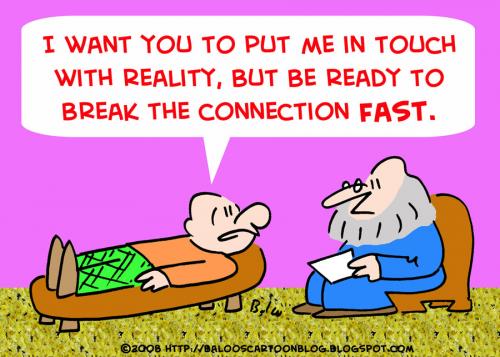The New American | May 13 2012
 Unlike in conventional medicine where objective diagnoses and treatments are made based on observable biological evidence, psychiatrists get together every so often to decide what should or should not be considered a “mental illness.” And they do not always agree, as evidenced by the more than 13,000 professionals from around the world who recently signed an open letter demanding that the upcoming edition of the psychiatry industry’s “diagnostic manual” be put on hold and reconsidered.
Unlike in conventional medicine where objective diagnoses and treatments are made based on observable biological evidence, psychiatrists get together every so often to decide what should or should not be considered a “mental illness.” And they do not always agree, as evidenced by the more than 13,000 professionals from around the world who recently signed an open letter demanding that the upcoming edition of the psychiatry industry’s “diagnostic manual” be put on hold and reconsidered.
As the elite of the nation’s psychiatric establishment work in the shadows to fully revise the highly controversial handbook labeling various behaviors and emotional states as “illnesses,” experts across the board are crying foul. A handful of new potential mental disorders and the revised definitions for others have caused a particularly fierce uproar among some psychiatrists and mental health professionals. At least 25,000 comments have already been submitted about the proposals.
The debate and its resolutions, of course, will have serious repercussions. Depending on the outcome of the ongoing conflict, millions of people may suddenly find out that they are afflicted with newly created “diseases,” while others — especially certain individuals diagnosed with forms of autism — may no longer qualify under the new definitions. Tens of millions more may soon be officially considered “addicts” under the revised definition for addiction, too.
The proposed changes would have broad implications affecting everything from treatment regimens to welfare programs, criminal law, and even education. But around the world, psychiatrists and mental health professionals are fighting back hard, urging the American Psychiatric Association (APA) to hold off on the revisions until more discussion and research can take place.
Known as the “Diagnostic and Statistical Manual of Mental Disorders” (DSM), the controversial handbook is widely used around the globe by the mental health industry, governments, insurance companies, and more. If all goes as planned, the fifth edition of the so-called “Bible” of psychiatry is set to be distributed in May of next year after the first major revision in over a decade.
